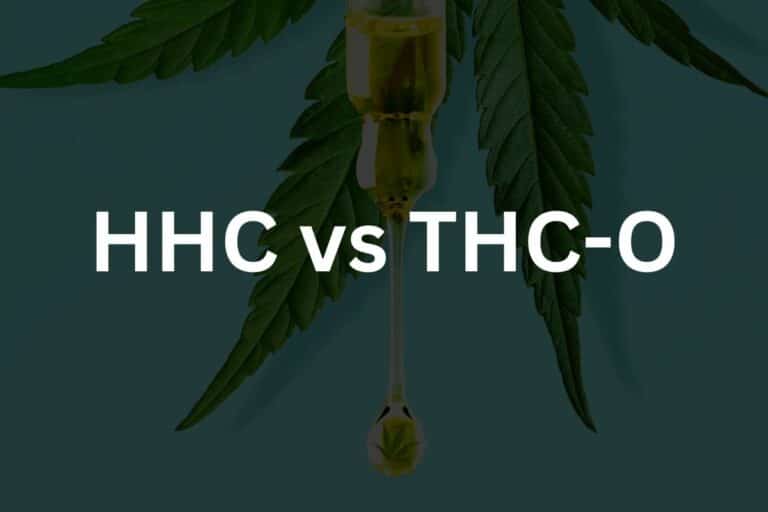Does Delta 9 Gummies Help With Stomach Pain? Exploring the Effects
Dive into the world of Delta 9 THC gummies and discover their effect on your insides. These tiny adventurers, loaded up with Delta 9 THC famous for taking your mind on an unforgettable journey, also play around with your endocannabinoid system. This system plays a big role in handling the snacks you love and might make your belly rumble a bit. Plenty of folks are out there saying these gummies are magical for digestive problems, yet it’s crucial to take a closer look at these stories. Asking why? Because solid, knock-your-socks-off evidence from the realm of science isn’t quite complete. If you’re itching to uncover if these gummies’ claims of calming your guts hold water, you’ve hit the jackpot. Get ready for an adventure as intriguing as it is mysterious.
Considering the complex nature of stomach pain, which can stem from various causes including inflammation and altered bowel habits, it’s worth noting that Delta 9 THC exhibits properties that may address such issues. Research suggests that cannabinoids, including THC, might support the management of inflammation and discomfort in the digestive tract. However, it’s vital to bear in mind any legal restrictions and potential side effects when considering the use of Delta 9 THC gummies for stomach pain.
If you’re looking into the use of Delta 9 THC gummies as a form of relief, consulting with a healthcare professional is recommended. They can provide guidance based on your specific circumstances, help assess potential risks versus benefits, and ensure that any chosen remedy aligns with current scientific understanding and personal health considerations. While there may be indications of THC’s effects on pain and inflammation, an individualized approach is key in addressing gastrointestinal ailments effectively.
Understanding Delta 9 THC
As you seek to understand Delta 9 THC and its interaction with the body, it’s essential to grasp its role within the endocannabinoid system and how it compares to other cannabinoids.
The Science of THC and the Endocannabinoid System
Tetrahydrocannabinol (THC) is the primary psychoactive component of cannabis. Your body’s endocannabinoid system (ECS) plays a crucial part in regulating functions such as sleep, mood, appetite, and pain. The ECS consists of receptors like CB1 and CB2 which interact with cannabinoids such as THC. When you consume Delta 9 THC, it binds with these receptors, primarily CB1 receptors found in the brain, which can influence the release of neurotransmitters and result in mood changes or pain relief.
Comparison of Delta-9 THC to Other Cannabinoids
- Delta-9 THC vs. Delta-8 THC: Delta-9 THC is more potent and has a stronger affinity for the CB1 receptors, leading to more pronounced psychoactive effects compared to Delta-8 THC, which is known for a milder impact.
- Delta-9 THC vs. Delta-10 THC: Delta-10 is one of the latest cannabinoids to enter the market with effects that are reported to be less intense than Delta-9.
- THC vs. CBD (Cannabidiol): Unlike THC, CBD does not produce psychoactive effects. Instead, it’s recognized for its potential therapeutic benefits without the high.
- THC vs. Other Cannabinoids (CBN, CBG): Cannabinol (CBN) and cannabigerol (CBG) are cannabinoids found in hemp plants that are still being researched for their respective properties. CBN is being studied for potential sedative effects and CBG for its potential anti-inflammatory properties.
The 2018 Farm Bill differentiates hemp and marijuana based on the THC content. Hemp plants containing less than 0.3% Delta-9 THC are deemed legal at a federal level, which has increased accessibility to various THC and CBD products.
Benefits of Delta 9 for Stomach Pain

Delta 9 THC, known for its psychoactive properties found in cannabis, may also provide symptomatic relief for various types of stomach pain. Its potential benefits could range from pain reduction to alleviating gastrointestinal distress.
Pain Relief and Anti-Inflammatory Effects
Delta-9-tetrahydrocannabinol (Delta 9 THC) is reported to have anti-inflammatory properties, which may contribute to its ability to relieve stomach pain and discomfort. Studies suggest that THC can interact with the body’s endocannabinoid system to potentially reduce inflammation, a common cause of pain in conditions such as fibromyalgia. Delta 9 gummies, a form of THC product, might provide convenient, dosed relief that could help manage your stomach pain.
- Pain Relief: Delta 9 THC interacts with cannabinoid receptors to potentially reduce pain signaling.
- Inflammation: By lowering inflammation, delta 9 THC may address the root cause of the pain.
Nausea Reduction and Appetite Stimulation
Beyond their pain-relieving potential, delta 9 THC has been widely recognized for its effectiveness in nausea reduction and appetite stimulation. This makes it a therapeutic option for those experiencing stomach pain accompanied by nausea. Medications like Marinol, which contain a synthetic form of THC, are approved for nausea relief in chemotherapy patients. Delta 9 gummies might offer similar benefits and are noted for their relaxation effects, which could be particularly helpful if your stomach pain is exacerbated by anxiety.
- Nausea Control: Anti-emetic qualities of delta 9 THC could calm the digestive tract.
- Appetite Boost: By stimulating appetite, delta 9 THC might improve nutritional intake, assisting with recovery.
While research is ongoing, these properties highlight the therapeutic potential of delta 9 THC in tackling specific symptoms associated with stomach pain.
Consumption Methods and Products

When looking to alleviate stomach pain with cannabis products, the method of consumption and the type of product can significantly affect the experience. It’s crucial to choose a method and product that aligns with your preferences and needs.
Edibles and Gummies
Delta-9 THC is often ingested in the form of edibles and gummies, which are a popular choice due to their ease of use and precise dosing. Delta 9 gummies, for instance, come in a variety of flavors, like melon, and are typically infused with full spectrum CBD and organic hemp extracts. Unlike smoking flower, edibles provide a controlled potency of THC without the need for inhalation. Here is a brief overview:
- Potency: Usually measured in milligrams, offering consistent dosing.
- Flavor: Range of options from fruity to herbal, masking the taste of cannabis.
- Ingredients: Often made with all-natural ingredients, including organic hemp.
Edibles like gummies also provide the convenience of portability and discretion. However, remember that the effects can take longer to manifest compared to other consumption methods, typically 30 minutes to 2 hours.
Tinctures, Oils, and Other Forms
Alternatively, tinctures and oils offer a different consumption experience. A tincture is a liquid extract that can be taken sublingually (under the tongue) for more direct absorption into the bloodstream, which may provide quicker effects than edibles. Here are some more specifics:
- Application: Delivered in drops, allowing for flexible dosing.
- Absorption: Faster onset of effects when used sublingually.
- Varieties: Often sold as full spectrum or CBD isolate, depending on the desired outcome.
Other forms like capsules and cannabidiol (CBD) oil can also be ingested and may contain a blend of delta-9 and CBD, which might provide synergistic effects. Products like CBDfx capsules are known for their consistent dosage and the convenience of not having to measure out each serving.
Choosing the right product — whether it’s a gummy enriched with organic hemp or a potent tincture — requires understanding your individual needs and how these different forms of delta-9 can influence your stomach pain relief objectives.
Side Effects and Safety Considerations
When considering Delta 9 THC gummies for stomach pain, it’s essential to be aware of the potential side effects and safety considerations. These can vary depending on individual sensitivity and state laws regarding THC products.
Common Side Effects
Delta 9 THC, the primary psychoactive component in cannabis responsible for an intoxicating effect, can lead to several side effects. These can range from mild to moderate and typically include:
- Dry mouth: A sensation of cottonmouth often accompanies THC consumption.
- Red eyes: Blood vessels in the eyes may dilate causing redness.
- Altered perception: Changes in the way you perceive time, motion, and color may occur.
- Paranoia: Some people may experience heightened paranoia or anxiety.
- Memory: Short-term memory can be temporarily impaired.
- A rapid heart rate and slowed reaction times may also be noticed.
Long-Term Risks and Contraindications
Over the long term, particularly with recreational or frequent usage, there can be additional risks:
- Chronic pain: While Delta 9 THC gummies may help in the short term, long-term use for pain management should be discussed with a healthcare provider.
- Judgment and concentration: Prolonged use may impair one’s ability to concentrate or make sound judgments.
- Issues with balance and coordination, impacting daily activities or overall quality of life.
It’s also critical to check a certificate of analysis for any product you consider, ensuring you know exactly what is in your gummies. Always abide by state laws and restrictions and remember that while Delta 8 THC might offer a milder effect, it can still carry similar potential risks. Always use these products in a comfortable environment, and consult a healthcare provider if you have existing health issues or if you’re taking other medications.
Legal and Regulatory Aspects

When considering the use of Delta 9 THC gummies for stomach pain, you need to navigate the complex legal and regulatory environment surrounding cannabis products. The legality of these gummies depends on state laws and federal guidelines, particularly the 2018 Farm Bill.
Compliance with State Laws and Regulations
You must check your state’s laws regarding THC because the legal status of Delta 9 THC gummies varies widely across the United States. Although derived from hemp plants, products containing Delta 9 THC can face restrictions depending on their concentration and total THC content. It is imperative to confirm that the gummies have a certificate of analysis (COA), which verifies they meet regulatory requirements and do not exceed the legal THC thresholds.
Understanding the 2018 Farm Bill
The 2018 Farm Bill is a key federal regulation that affects the legality of Delta 9 THC gummies. This bill legalized hemp-derived products with a Delta-9 THC concentration of no more than 0.3% on a dry weight basis. Due to this bill, if Delta 9 THC gummies are sourced from legally-compliant hemp plants and the THC level does not surpass the federal limit, they are generally considered legal on a federal level. However, regardless of the Farm Bill, state regulations may impose their own limitations, and you should ensure that you are in full compliance with your local laws.
Choosing Quality Delta 9 Products
When selecting Delta 9 THC gummies for any purpose, including potential relief from stomach pain, understanding the quality and purity of the product is crucial. Your choices should be informed by rigorous testing and trustworthy branding.
Certificate of Analysis and Product Testing
Always look for a Certificate of Analysis (CoA) from third-party laboratories when choosing Delta 9 products. The CoA should confirm that the THC potency listed on the product matches the actual content, and it should also screen for contaminants. High-quality Delta 9 gummies are derived from organic hemp, and the absence of pesticides and heavy metals is just as important as the THC potency and cannabidiol (CBD) content.
- Check for:
- THC content: Ensures product effectiveness and legality.
- CBD levels: Often present in gummies to complement THC’s effects.
- Purity: Screens for unwanted chemicals or additives.
Brands and Consumer Trust
Select products from brands that have cultivated consumer trust through transparency and quality assurance. Joy Organics is an example of a brand that places emphasis on organic practices and customer satisfaction.
- Considerations for brand trust:
- Consumer reviews: Look for positive feedback and testimonials.
- Brand history: Established brands are more likely to have refined their product quality.
- Transparency: Brands should be open about sourcing and manufacturing processes.
By prioritizing these key factors, you are more likely to find Delta 9 gummies that are safe, pure, and effective. Remember, the right choice can make a difference in your experience with these products.
Responsible Use and Dosage Recommendations

When considering Delta-9 THC gummies for relief from stomach pain, it is essential to focus on finding the right dosage and adhering to responsible consumption practices to minimize side effects while maximizing effectiveness.
Determining the Right Dosage
The appropriate dosage of Delta-9 THC can vary widely among individuals due to factors such as body weight, individual tolerance to cannabinoids, and the severity of your condition. Start with a low dose and pay attention to your body’s response.
Healthcare providers often suggest a gradual approach, increasing the dosage slowly until you find a level that offers relief without adverse psychoactive effects. Be mindful that the potency of Delta-9 THC gummies can influence the intensity of their effects, so it is crucial to read the THC concentration per gummy clearly labeled on the product packaging.
Best Practices for Responsible Consumption
Responsible consumption of Delta-9 THC gummies is key to safely managing your symptoms of stomach pain without compromising your health or coordination. Here are some specific guidelines:
- Begin with a low dose, particularly if you are new to THC or have a low tolerance.
- Track your intake to monitor the effectiveness and any potential side effects.
- Avoid driving or operating heavy machinery after consuming Delta-9 THC gummies due to their psychoactive effects.
- Consume THC gummies in a safe environment where you can relax without the need for heightened coordination.
- Consult with a healthcare provider who can provide personalized dosage recommendations, particularly if you use Delta-9 THC gummies for chronic pain or alongside other medications.
Remember that while some find Delta-9 THC gummies an effective recreational product, their use in alleviating symptoms, including stomach pain, should be considered with care and in consultation with a healthcare professional.
Potential Therapeutic Applications
| Therapeutic Application | Description |
|---|---|
| 1. Pain Management | Delta-9 THC is known for its analgesic properties, making it potentially effective in managing various types of pain, including chronic pain and pain associated with certain conditions. |
| 2. Nausea and Vomiting | Delta-9 THC has been used to alleviate nausea and vomiting in patients undergoing chemotherapy or experiencing symptoms related to other medical treatments. |
| 3. Appetite Stimulation | Delta-9 THC is known to stimulate appetite, making it useful for individuals dealing with appetite loss due to medical conditions or treatments. |
| 4. Muscle Spasms | Some studies suggest that Delta-9 THC may help reduce muscle spasms, making it a potential therapeutic option for conditions such as multiple sclerosis (MS). |
| 5. Glaucoma | Delta-9 THC has been investigated for its potential to lower intraocular pressure, which may be beneficial for individuals with glaucoma. However, its use for this purpose is limited. |
| 6. Anti-inflammatory | Delta-9 THC may have anti-inflammatory properties, and it has been studied for its potential in mitigating inflammation associated with certain conditions. |
| 7. Anxiety and Stress | While low doses may have anxiolytic effects, high doses of Delta-9 THC can sometimes exacerbate anxiety. Its effects on anxiety can vary between individuals. |
| 8. Sleep Disorders | Delta-9 THC may have sedative effects, and some individuals use it to manage sleep disorders. However, its impact on sleep can vary, and long-term use may have mixed effects. |
Delta-9 THC gummies may offer therapeutic benefits due to the properties of cannabinoids in managing symptoms such as stomach pain. Exploring its impact on pain and other ailments could shed light on their potential medical benefits.
Impact on Chronic Pain and Neuropathic Pain
Delta-9 THC, the primary psychoactive compound in cannabis, has been observed to possess pain-relieving properties. When you consume Delta-9 THC gummies, they might interact with your body’s endocannabinoid system, potentially reducing the sensation of pain.
Chronic pain and neuropathic pain—a result of nerve damage—can sometimes be alleviated by such cannabinoids. People living with conditions like fibromyalgia have explored cannabinoids to improve their quality of life. However, it’s essential to consult your healthcare provider before considering Delta-9 THC for pain management.
Benefits Beyond Stomach Ailments
Beyond stomach pain, Delta-9 THC and other cannabinoids may offer a range of therapeutic benefits. These compounds can exhibit anti-inflammatory effects, which contribute to pain relief. The presence of terpenes and the entourage effect—where all components of the cannabis plant work together—might enhance these benefits. Additionally, cannabinoids might aid in the management of insomnia and low appetite, which often accompany chronic health conditions. While there has been research into the use of cannabinoids like cannabidiol (CBD) for cancer-related symptoms, Delta-9 THC gummies have not been widely studied in this context. Regular consultation with a healthcare provider is crucial when considering cannabinoids for any medical use.
Research and Studies on THC and Pain Management
Recent research has progressively illuminated the role of THC in pain management, delving into how this cannabinoid potentially influences pain perception and relief.
Clinical Trials and Scientific Evidence
Clinical trials have contributed substantial evidence regarding THC’s efficacy in pain relief. For instance, cannabinoids like delta-9-THC have been evaluated in various settings, suggesting pain modulation qualities that may benefit certain individuals. In a study focusing on gastrointestinal disorders, THC showed potential in providing pain relief that aligns with the Manning Criteria.
Furthermore, clinical evidence indicates that products like delta-9 THC gummies may offer science-backed relief for muscle tension without an intense high, which aligns with patient desires for non-disabling pain management solutions. The scientific community continues to examine THC’s interaction with pain signaling in the body to better understand its medical benefits.
Experts’ Opinions on THC for Pain Relief
Healthcare providers and researchers have diverse views on the use of THC for pain management. Some experts maintain that THC and other cannabinoids present a viable alternative to traditional pain treatments, particularly where other medications have failed. Books like “Cannabis for Chronic Pain: A Proven Prescription for Using Marijuana to Relieve Your Pain and Heal Your Life” consider cannabinoids as a transformative agent for pain relief and overall healing. Conversely, some experts caution about the psychoactive effects of THC, advocating for careful, controlled therapeutic use. They point to the need for more comprehensive studies to establish definitive guidelines for cannabinoid-based pain therapies.
Additional Considerations and Frequently Asked Questions
Before trying Delta 9 gummies for stomach pain, it’s important to consider various factors such as potential benefits, proper usage, and legal implications. This section will address common concerns and provide guidance to ensure responsible consumption, especially for first-time users.
Addressing Common Concerns
When considering the use of Delta 9 gummies for stomach pain, questions about its effectiveness and safety are common. Dosage is particularly critical; it’s crucial to start with a low dose to understand your individual response. Overconsumption can lead to unpleasant side effects, so it’s essential to adhere to dose recommendations, which might vary depending on the product and your tolerance level.
It’s also advisable to consult a healthcare provider before starting any new supplement regimen, especially if you have underlying health conditions. Additionally, be aware that state laws vary widely regarding the use of Delta 9 THC products, and it’s your responsibility to ensure compliance with local regulations.
Guidance for First-Time Users
For first-time users, navigating the world of Delta 9 gummies can be challenging. Begin by researching reputable brands to ensure the quality and safety of the product. Remember, a healthcare provider can offer personalized guidance considering your health history and current medications.
When taking Delta 9 gummies, be patient as the effects may take longer to manifest compared to other forms of consumption. It is recommended to consume gummies in a comfortable, safe environment and to avoid driving or operating heavy machinery after taking them.
By considering these aspects and proceeding with caution, you can explore the potential relief that Delta 9 gummies may provide for stomach pain in a responsible and informed manner.
Conclusion

When considering the effectiveness of Delta-9 gummies for stomach pain, it’s important to evaluate the current evidence available. Delta-9 tetrahydrocannabinol, commonly referred to as THC, is known for its psychoactive properties but also possesses therapeutic potential. Some studies suggest the ability of cannabinoids to alleviate certain types of discomfort, including abdominal pain, however, the research is not definitive.
- Efficacy: Cannabinoid receptors like CB1 are present in the nervous system, and their interaction with THC may influence pain perception.
- Insufficient Evidence: Available literature stresses that there is insufficient evidence to conclusively support the widespread use of Delta-9 THC for stomach pain.
- Side Effects: Potential side effects associated with HHC gummies, which may contain Delta-9 THC, include drowsiness or dizziness, as reported by some users. Being aware of these is important if you are considering their use.
Before experimenting with Delta-9 gummies for stomach pain, you should consult with a healthcare provider to discuss both the potential benefits and risks. Remember, individual experiences can vary, and what works for one person might not work for another. It’s essential to use such products responsibly and under medical guidance, especially when it pertains to health conditions like stomach pain.
Frequently Asked Questions
In this section, you’ll find concise answers to common inquiries regarding the use of Delta 9 gummies and their effects on stomach pain.
What are the side effects of consuming Delta 9 gummies?
When consuming Delta 9 gummies, you may experience side effects such as dry mouth, red eyes, and in some cases, gastrointestinal discomfort or anxiety, depending on your body’s reaction to THC.
Can Delta 9 gummies alleviate chronic pain symptoms?
Delta 9-tetrahydrocannabinol (THC), the main active ingredient in Delta 9 gummies, has been reported to help some individuals manage chronic pain by interacting with the body’s endocannabinoid system to potentially reduce pain perception.
What are the long-term implications of using Delta 9 products?
Long-term use of Delta 9 products may lead to tolerance, requiring higher doses to achieve the same effect and raising concerns about dependence. The full extent of the long-term implications is an ongoing subject of research.
Are Delta 8 or Delta 9 cannabinoids more effective for pain relief?
While both Delta 8 and Delta 9 cannabinoids may offer pain-relief properties, Delta 9 is typically more potent due to its higher psychoactive effects. However, individual experiences with pain relief may vary.
Can the effects of Delta 9 gummies be reversed?
If you’re experiencing undesirable effects from Delta 9 gummies, time is your primary remedy as there’s no known way to quickly reverse the psychoactive effects. Staying hydrated and resting in a comfortable environment may aid your recovery.
Are there any anti-inflammatory properties associated with Delta 9?
Research suggests that compounds in cannabis, including Delta 9 THC, possess anti-inflammatory properties which may contribute to their pain-relieving effects, though studies are ongoing and effects can vary among individuals.








